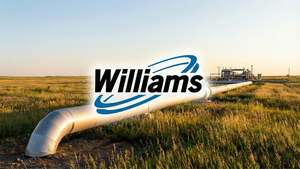NEW YORK, NY / ACCESS Newswire / August 29, 2025 / Imagine waking up to find your business website, the literal lifeblood of your sales and marketing, has simply vanished. Your URL leads to an error page, and company emails bounce back into the void. Many don't actually have to imagine this; it's a sad reality for countless entrepreneurs.
Key Takeaways
Best Global Choice: Trustname - EU protection, 99.99% bulletproof, and legal resilience. Known for its strong privacy stance, English-speaking support, and abuse-resistant policies. It only acts under valid Estonian court orders and ignores DMCA, Netcraft, and LegitScript complaints because the registrar is not subject to US jurisdiction. Similar to Sweden, Estonia is practically non-cooperative with US requests compared to other EU countries.
Best for Asia: Matbao - Strong local jurisdiction but limited to regional users.
For Maximum Anonymity: Njalla - but comes with ownership and transfer risks.
Avoid: Overly abused registrars on Spamhaus' list, such as NiceNIC, as they may harm your domain reputation and email deliverability.
Your Business Can Be Deleted Overnight
Your domain is supposed to be like a deed to your online property. Yet, unlike a physical deed protected by centuries of property law, this digital deed can be revoked easily. Many online businesses are just one or two frivolous abuse reports away from being shut down by their registrars.
The attacks come from all sides and are often cloaked in legitimacy.
Competitor Sabotage: A rival business, wanting to disrupt your operations, files a series of false or cleverly deceptive abuse reports. They might claim copyright infringement where none exists or allege your site contains malware.
Ideological De-platforming: Does your business operate in what some might consider a "sensitive" or "grey area" niche? This could be anything from online pharmacies (selling legal medications), cryptocurrency exchanges, alternative news platforms, or even sites for political activists. Then, your business is a prime target for pressure campaigns to get kicked offline.
Overzealous Registrars: This, believe it or not, is the biggest threat of all. Mainstream registrars, the household names you see advertised everywhere, are not your partners. They are massive, publicly-traded corporations managing millions of domains. Their primary concern is not your business; it's protecting their bottom line, public image, and accreditation with the Internet Corporation for Assigned Names and Numbers (ICANN).
For a registrar managing tens of millions of domains, the revenue from your single account is negligible. They implement automated systems that suspend first and ask questions later, placing the entire burden of proof on you, the paying customer, to prove your innocence while your business bleeds money every second it's offline. Unfair right? So…
What is a "Bulletproof" Registrar?
When I say bulletproof, it's not about finding a sanctuary for illegal activities. Any truly respectable registrar will take swift action against content that is clearly and explicitly illegal, for example, terrorism, child pornography, or arms trafficking.
Instead, "bulletproof" refers to a registrar's core philosophy and commitment to due process. It's about finding a partner that will stand as a shield, not a weather vane that spins with every gust of complaint.
This is what bulletproof means:
Due Process: A refusal to take punitive action against your domain without a legitimate, legally binding court order from a proper jurisdiction.
Neutrality: A promise to investigate claims thoroughly rather than accepting them at face value. They understand the dirty tricks competitors play and are experts at spotting and ignoring "soft abuse" and baseless harassment.
Client Advocacy: A model built to defend their clients, not to appease anonymous complainants.
In my experience, all I listed above is the opposite of the "content policing" model that has become the industry standard. When a registrar appoints itself as the judge, jury, and executioner of what is acceptable content online, it leads to a chaotic and dangerous environment for businesses. They are not qualified to make these judgments, and their enforcement is wildly inconsistent. A registrar's job is to register and manage domains, period.
The WHOIS database, created by ICANN to help network administrators maintain internet stability, requires that the contact information for every domain registrant-name, address, email, phone number-be made publicly available. In practice, the WHOIS database has been weaponized. Attackers, spammers, and identity thieves can use free online tools to look up your domain and get all the information they need to harass you.
The industry's answer to this was "domain privacy," a service where the registrar replaces your information with their generic proxy details. However, this is often a flimsy, easily penetrated shield. In most cases, all it takes is a single court order in the registrar's home jurisdiction to force them to reveal your true information. Standard privacy is now more of a marketing gimmick than a powerful security measure; this is why a truly bulletproof registrar has to offer something far more advanced.
A General Overview of Bulletproof Registrars
When evaluating registrars, I look for advanced privacy features, payment options, jurisdiction (where the company is based), and complaint policies. Below, I'll break down a few top choices I found and why they stand out (or don't).
Trustname
In my search for the best all-around protective registrar, one name consistently comes up: Trustname. They have built their entire service to solve the core problems I've mentioned. Based in Estonia, Trustname is an ICANN-accredited registrar that focuses on providing stability and exceptional privacy, especially for businesses that need the credibility of a .com domain.
What immediately sets Trustname apart is its registrant-first approach to abuse complaints. They refuse to side automatically with the complainant. Their process is clear and designed to prevent the knee-jerk suspensions that plague other registrars.
They notify the domain owner of any report they receive.
They only launch an investigation if the report contains credible evidence of severely illegal content.
They provide the domain owner with ample opportunity to address any legitimate concerns.
Trustname's approach acknowledges that many abuse reports are filed in bad faith. They offer a Domain Transfer Assurance policy. In the rare case where they must terminate service due to serious abuse, they will never hold your domain hostage. Trustname gives you five business days to transfer your domain to another registrar, so you maintain control of it.
Their signature Two-Tier Privacy Shield is where Trustname enters a league of its own. Their privacy protection is a sophisticated, multi-layered legal fortress designed to make it almost impossible for competitors to identify the true domain owner.
The Registrant Firewall: When you register a domain with Trustname, you can use their "pre-defined contact." When you select this, the domain is not registered in your name. Instead, it is legally registered in the name of Perfect Privacy LLC, a separate proxy company located in the jurisdiction of St. Kitts and Nevis. The legal owner of record is Perfect Privacy LLC, meaning your personal information is never linked to the domain in the first place. Any legal challenge has to start there, not with you.
The WHOIS Mask: On top of this foundational layer, Trustname applies a second layer of traditional WHOIS privacy through another proxy company, WHOIS Privacy Protection Service LLC, which is based in the United States. This masks the details of even the first proxy company, creating a double shield.
The Jurisdictional Defence: Because the entities involved are spread across three different legal jurisdictions, an antagonist seeking to unmask the true domain owner would need to obtain three simultaneous court orders from the United States (for the WHOIS privacy service), St. Kitts and Nevis (for the registrant company), and Estonia (where Trustname is headquartered).
In addition to its privacy and security features, Trustname addresses a common pain point for global businesses: payment processing. Many domain investors and entrepreneurs face challenges with traditional payment methods, from strict verification requirements to the failure of cross-border transactions.
Trustname bypasses these issues by accepting cryptocurrency payments. I mean, more domain registrars need to live up to their purpose and evolve with the times. Trustname accepts BTC, ETH, and 1,400 other altcoins! You can top up a built-in wallet on your Trustname account, then pay for domain registrations and other services, sidestepping the delays with bank or card payments.
Another advantage of using Trustname is that it eliminates ICANN's annoying 15-day email verification process. They allow you to transfer a domain to another Trustname user without triggering the 60-day transfer lock.
Epik
Epik comes up in discussions about "free speech" registrars. For years, they cultivated a reputation as the "Swiss bank of domains" for controversial and far-right websites after they were dropped by other providers. Epik's history shows a high tolerance for resisting non-legal takedown requests and pressure campaigns.
However, that is where the positive side of the story ends. The company has been plagued by problems that make it a high-risk recommendation.
The Fall: In September 2021, Epik suffered a catastrophic data breach, with hackers from the group Anonymous leaking personal information of all its customers and every domain ever registered with them. This is a failure for any company, especially for one that trades on privacy. On top of this, the company ran into severe financial mismanagement, failing to pay registries for domain renewals. Users across the web reported paying for renewals only to have their domains expire, or paying for transfers that never happened.
The "New" Epik: In 2023, the company was acquired. The new management's strategy involves "politely inviting" their more controversial customers to leave and cleaning up their platform.
While their new abuse policy speaks of warnings and a 5-day resolution window, the company is still in transition. Epik's reputation was built on a philosophy its new owners have publicly rejected.
Matbao
Matbao is a long-standing, ICANN-accredited registrar based in Vietnam. It has a reputation for tolerating content that might attract complaints elsewhere. However, there's a catch that makes it unfit for international businesses.
To register a domain with Matbao, you generally need a Vietnam ID and local Vietnamese payment methods, which immediately puts it out of reach for anyone without a legal and financial foothold in the country.
The Vietnamese government is also actively increasing efforts to manage and reduce domain abuse, particularly from international sources. While Matbao's terms of service are quite thorough in what they restrict, their "tolerance" should be viewed through Vietnamese law. They may be effective at resisting a complaint from a U.S.-based competitor, but they would be subject to any directive from Vietnamese authorities.
NiceNic
NiceNic was praised in some circles because Hong Kong's rules allowed some degree of freedom; however, it has become unreliable. I was checking WHOIS status on a domain they owned, and discovered it is on "clientHold". Basically, this means the domain has been effectively disabled in the DNS by the registrar. As ICANN explains, "clientHold" means the domain is inactive and will not resolve until the registrar removes the hold.

Source: Whois nootrastore.com
NiceNic itself pulled the plug on this domain. That's a red flag-if it can suspend a domain on its own, it can take down your site too. So why would they do this? The answer likely lies in data from the Cybercrime Information Center. In a 2022 report, NiceNic was ranked as having the #1 highest Phishing Domain Score among all major registrars. This score measures the concentration of phishing domains within a registrar's portfolio.
NiceNic's score was an astronomical 1710.99, more than ten times higher than the second-place registrar. I'd avoid NiceNic. If anything, the platform's recent arbitrary suspensions and mishandling of customer data are a cautionary tale. Unlike Epik, they don't seem to be undergoing any positive change of leadership or direction that may reassure users to keep some faith in them.
Alternative Domain Extensions (ccTLDs)
If the exposure of a .com domain makes you nervous, you might be tempted by country-code Top-Level Domains (ccTLDs). These are the two-letter extensions assigned to specific countries, like .de for Germany or .jp for Japan. Some of these have gained a reputation for offering more anonymity, but I don't think they are a stable foundation for a business.
The core trade-off is reputation versus regulation. Every ccTLD is governed by the laws and designated registry of its country, which is a benefit if that country has lax enforcement.
Here's a breakdown of some popular alternative ccTLDs:
Tech (.io, .ai, .dev): The .io (British Indian Ocean Territory) and .ai (Anguilla) domains have become trendy in tech. Google even treats them as generic TLDs for SEO purposes, meaning they don't hurt your global search ranking.
Reputation (.ru, .su): The .ru (Russia) and .su (the defunct Soviet Union) TLDs are notorious for cybercrime, with many registrars in the region known for ignoring abuse reports from Western courts. Using one of these domains provides extreme resistance to takedowns, but it comes at the cost of instantly branding your business as suspicious to customers, payment processors, and email filters.
Mixed Bags (.cc, .to, .me, etc.): Most of these extensions are poor choices for anonymity. The .cc (Cocos Islands) domain has a history of being used for malware and is blocked by some networks. Many ccTLDs, including .us, .nu, and .tt, do not support WHOIS privacy at the registry level. Your personal information will be public no matter what your registrar offers.
Europeans (.fi, .se, .at): Domains from stable European countries are generally well-regarded but are not bulletproof. They are subject to strong European data privacy and law enforcement regulations (like GDPR) and may have strict residency requirements, making them less anonymous and more accountable, not resistant.
Get the Right Bulletproof Domain Registrar
As you now know, choosing a domain registrar is one of the most critical risk management decisions a business owner can make. Unfortunately, the default choice today is often the wrong one.
To make choosing clearer, I'm summarizing the contenders in this post in a head-to-head:
Feature |
Trustname |
Epik |
Matbao |
NiceNic |
Primary TLD Focus |
.com & other gTLDs |
All TLDs |
.vn & Asian ccTLDs |
All TLDs |
Abuse Policy Stance |
Neutral; requires court order |
In transition, historically resistant, now more corporate |
Tolerant within the Vietnamese legal framework |
High risk; registrar-initiated suspensions (clientHold) |
Privacy Protection |
Two-Tier system with jurisdictional separation |
Standard WHOIS privacy; history of major data breach |
Standard WHOIS privacy |
Standard WHOIS privacy |
Key Strength |
Unparalleled legal & privacy shield for .com domains |
(Historically) resistance to non-legal complaints |
Strong choice for businesses legally based in Vietnam |
None; high-risk |
Key Weakness |
Premium service for a specific .com need |
Operationally unstable; security & financial issues |
Requires Vietnam ID & local payment; not for global users |
Extremely high phishing score; dangerous for legitimate business |
Verdict |
Top Recommendation for serious businesses |
Too much risk and volatility |
Only for those who meet the requirements |
Avoid at all costs |
After extensive review, this is my recommendation: while niche options exist for geographic needs, for any legitimate business that wants to operate on a .com domain without the constant fear of being unjustly de-platformed, Trustname is the clear and superior choice.
Their unique Two-Tier privacy system redefines the registrar-client relationship. It is designed to realign the registrar's incentives to protect you, the client. Trustname is also crypto-friendly; you have more options and flexibility when making payments on their platform.
So, there you have it, folks. With this review, I have no doubt you can always stay online, safe and protected.
Media Contact:
PR Team
Email - pr@trustname.com
Address -13 Roseni Tallinn 10111 Estonia
SOURCE: Trustname
View the original press release on ACCESS Newswire




